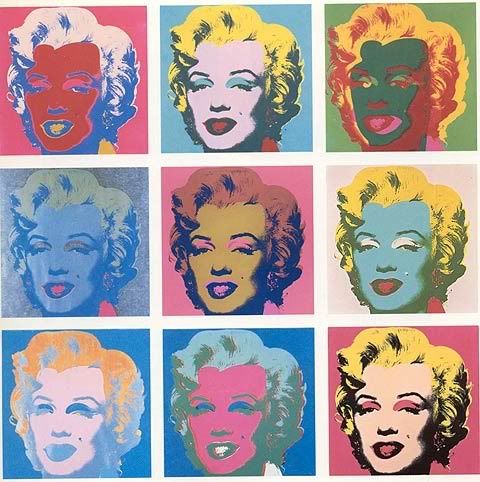There's plenty to hate about pop culture. I'm sure all that can be said has been said and is being said again, even by the same people who embrace it daily. Also, I personally don't hate pop culture. I'm fascinated by it to some extent. I think the feeling that it should sometimes inspire is not so much hate (contempt, perhaps, when you're faced with its excesses). Rather, I think the occasional feeling towards it should be fear.
Why be afraid? Well, because of its power and its blindness. And while the weight of its mass is blind, it is controllable and is controlled. On one hand, it expresses the fickleness of public opinion. On the other, it reeks of the real possibility of moulding and pushing that ephemeral opinion one way or another. Moreover, this is done under an appealing visage of individuality and 'culture'.
Take the death of Michael Jackson as an example. Just before it happened, he was a joke, a figure receiving of laughter and contempt in the public consciousness. He was hated for being a likely paedophile, reviled for opting to disfigure himself to change his skin colour and labelled as a has-been. That was the kind of image that the media portrayed.
And then he died. Suddenly, he was a star again. He was remembered as the king of pop, not the has-been that he had just been regarded as. His unsavoury lifestyle and habits were forgotten amidst a worldwide phenomenon of mourning. And that is itself phenomenal. People suddenly acted as if he was a hero, as if he was universally loved for his contributions. But what has he done to merit such an image? Can he really be considered a heroic figure?
So what could explain such a turnaround? What else, if not the fact that people buy readily into hype? And hype is just one face of the manipulation of public opinion that pop culture facilitates and disguises. Behind the phenomena, there are people who want you to think this or that at their whim. One day you're allied with Eurasia and at war with Eastasia; tomorrow, you're suddenly allied with Eastasia and at war with Eurasia – and that is accepted with hardly a blink!
Don't you get a shudder when you think of this? But perhaps you wouldn't, simply because such an incredible leverage is not used for overtly sinister purposes. Why, at most these controlling interests ultimately want you consume this or that, right?
But, once again, that is only one face of the whole machinery, a vast apparatus that is also perpetuating all sorts of problems across the world. And that is because it is an amoral force, a force motivated by objects and concepts that are not even actual objects except by the tacit acknowledgement of people who want them to be. It is an inhuman force.
In this instance, however, the force appears very much human. Pop culture is frequently about celebrating individuality, about expressing yourself. It is called culture. Yet it is one that is mass produced, packaged and marketed to as many people as possible. It celebrates the same 'individual' identities that many celebrate, and also that certain people want you to celebrate. It appears as some sort of social consciousness, but it is one that is very much controlled by large profit-oriented private interests. Clearly, it is paradoxical and absurd.
I guess the fear really lies in the thought that this might be both the present and the future, the idea that we could be watching an unending show that sickens us. And that is because society is unable to break free from the mechanisms behind the phenomena. We watch, engrossed for a while, but as soon as we care to look into it, we realise the trick. And with horror we witness how it captures the audience again and again.
Perhaps they want to believe what they are seeing.
Are you watching closely?
Perhaps they want to believe what they are seeing.
Are you watching closely?

(0) Comments
Post a Comment